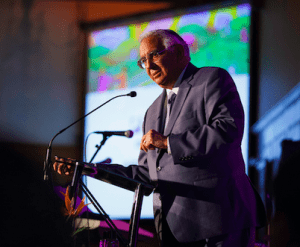On the back of William Willimon’s book, Why Jesus?, Jason Byasee says Willimon has an eye for what is deliciously odd in Scripture, and I’m swiping Jason’s blurb line for this series because it perfectly describes the way Willimon writes about Jesus. As I have been reading Tim Keller’s new book on Jesus and Willimon’s at the same time, the word that comes to mind is “tension.” Keller’s book is fully Reformed; Willimon’s book is not — and they are both describing Jesus. But this isn’t a comparison, but instead a sketch of Willimon’s fine new book. 
Here’s the problem with Jesus: We have domesticated him, made him one of us, made him like us, tamed him. He has become one of us so we don’t have to change. But the Gospels give us a deliciously odd Jesus — Odd when compared with us.
What can we do to unleash this deliciously odd Jesus?
Willimon races through the Gospels in his first chapter. His theme is “Vagabond” and there is no more space for Willimon to cover this theme than there was space to contain Jesus in Galilee. I will quote some of his points…
“All the gospels present Jesus on a continual road trip — God in motion.”
“Anybody who wants to meet Jesus, to understand or to be with Jesus, must be willing to relocate.”
“Jesus is God in motion, on the road, constantly going elsewhere, often to where he is not invited.”
Following the resurrection, there’s even more motion:
“Here is God on the move, moving toward us; God defined by God, God ordering us to be on the move into the world with God.”
“God is a Jew from Nazareth who lived briefly, died violently, and rose unexpectedly.”
Here’s one we can all quote: “few expected God to show up as a homeless man, unmarried, and unemployed.”
“Sometimes people say, ‘God? Oh, can’t say anything definitive about God. God is large, nebulous, and vague.’ We wish. By rendering God into an abstract idea, we can be assured that we’ll always be safe from God.”
“Jesus tends to come to people where they are but rarely leaves them as they were.”
Enough?
One more: “The Bible introduces us to a living, speaking moving Person, not to the fixed and final word on everything.”











